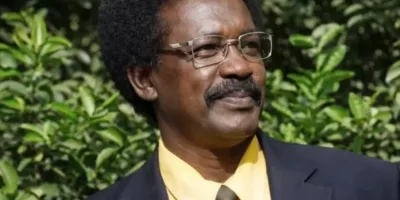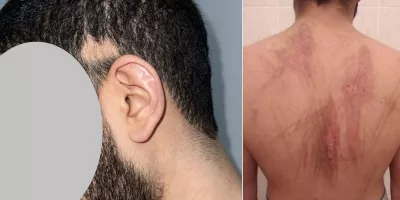A spokeswoman for the Committee for Justice (CFJ) Yasmine Hajar, has emphasized that the principle of the right to a fair trial is one of the basic pillars of human rights in the global system, and that every citizen, regardless of their judicial status, should enjoy this principle, which is not upheld in Egypt now.
Fair trial rights linked to the preservation of human dignity:
Commenting on the organization’s latest report, “2020: A year of breaching the right of defense”, Hajar said in a television interview on the Cairo Time program broadcast on Al-Araby TV, “When a person appears before the courts, he appears before the state and its wealth of power and equipment. Therefore, it was necessary to establish basic principles that would protect this person from any violation of him by the state and its agencies. The principles of a fair trial in this regard and the Universal Declaration of Human Rights have enshrined this principle to become one of the pillars of fundamental human rights in the international system. That right includes for example the right of a person not to be subjected to arbitrary arrest, and not to be subjected to enforced disappearance by the state, as well as his right to communicate directly with a lawyer, to receive visits by his family and to communicate with them by phone or messages, along with other rights that are fundamentally related to protecting human dignity and preserving his status as a citizen of the state.”
The right to a fair trial is a right for all defendants:
On a question related to whether the principles of a fair trial apply to all defendants, even those who have already committed terrorist crimes, or rape or murder, for example, Hajar replied:
“As the Universal Declaration of Human Rights and international agreements state, every citizen must enjoy the principles of a fair trial irrespective of his charges or judicial status. For example, no one should be subjected to enforced disappearance. This must be a principle preserved by the state and applied in all cases. Also, all citizens must be protected from any forms of arbitrary detention. When a person is arrested, he must be given legal explanations on the basis of which he is arrested. Torture, confessions under torture, humiliation and inhuman treatment inside detention centers are also internationally prohibited.”
On the latest CFJ report:
Regarding the most important findings of the report, Hajar pointed out that by analyzing the papers of 90 cases, involving 3,200 detainees and accused persons before the civil and military courts in Egypt since 2013, CFJ was able to monitor many violations related to the right to a fair trial, especially the right of defense.
The organization’s spokeswoman added that “the organization found that there are 31 minors held in political cases, which is a large number, and five death sentences were issued during the year, despite the problem of the lack of independence of the judiciary in Egypt.
There have also been 266 cases of enforced disappearance, 144 incidents of torture that occurred against the victims during the course of their investigations, in addition to many violations, especially since many victims mentioned before the prosecution and the judiciary that they had been subjected to torture and enforced disappearance, but the judiciary and the Public Prosecutor did not react and did not conduct any kind of transparent and immediate investigations into these violations.
The report also covered the recycling of cases, whereby the arrest of nearly 100 defendants was recycled into new identical cases even after the issuance of an explicit decision to release them. In some cases, the defendants asked the investigation authorities about the nature of the charges against them, for example the charge of joining a terrorist group, and sometimes asked about the name of the group but did not receive an answer.”
Methodology for monitoring and documentation:
Regarding the methodology used to ensure the correctness of the information contained in the report, Hajer emphasized that “the organization monitored all these violations through 90 cases that were reached by a group of lawyers and a network of human rights defenders with whom the organization deals directly. Their numbers exceed 50 lawyers and defenders, and the documentation is based on analyzing the various stages of the trials according to the available papers that we can reach, read, and analyze.”
Covid-19 allowed Egypt to legalize repression:
Hajar explained that the Coronavirus pandemic did not bring anything new, as the violations since 2013 and the severity of the repression practiced by the Egyptian authorities have increased.
“The pandemic has shown the Egyptian authorities’ attempts to seize opportunities and circumstances to increase repression and tighten the grip on citizens, for example there have been various arbitrary arrests in 2020, despite the international call to try to reduce the number of detainees in detention centers, such as the arrest of doctors and the arrests of the September demonstrations.”
Hajar concluded that the pandemic demonstrated the readiness of the Egyptian state to legalize violations and formalize them, such as the amendments made to the Terrorist Entities Law, which expands the powers of the Public Prosecution to place names on terrorist lists, and the amendment of the Emergency Law, which gave greater authority to the Armed Forces to carry out arbitrary arrests. There are also official decisions, such as the Ministry of Interior’s decision to prevent visits inside prisons, which cut off the detainees and detainees ’communication with their families.
Violations are widespread and must stop in Egypt:
Regarding the rejection of some Egyptians of the criticism directed at their country’s government regarding human rights, and the fact that CFJ’s spokeswoman is Lebanese, Hajar confirmed that the CFJ report is based on case papers obtained from inside Egypt, and all violations monitored are the result of these documents.
Hajar continued: “In addition to being Lebanese, I work for CFJ and although it is in Geneva, it is classified as Egyptian and works with Egyptian human rights lawyers and defenders. Violations are widespread. This will affect Lebanon, Tunisia, and the whole region, especially with the arbitrary arrests and enforced disappearances that happen today in Tunisia, and the whole world is trying to put an end to the violations in Egypt, in addition to the fact that Egypt is using the accusation of terrorism that affects the use of terrorism arguments not only in Egypt, but in the Arab world and the whole world, so it is not only the Arabs who are interested in Egyptian affairs, but also internationally.”






